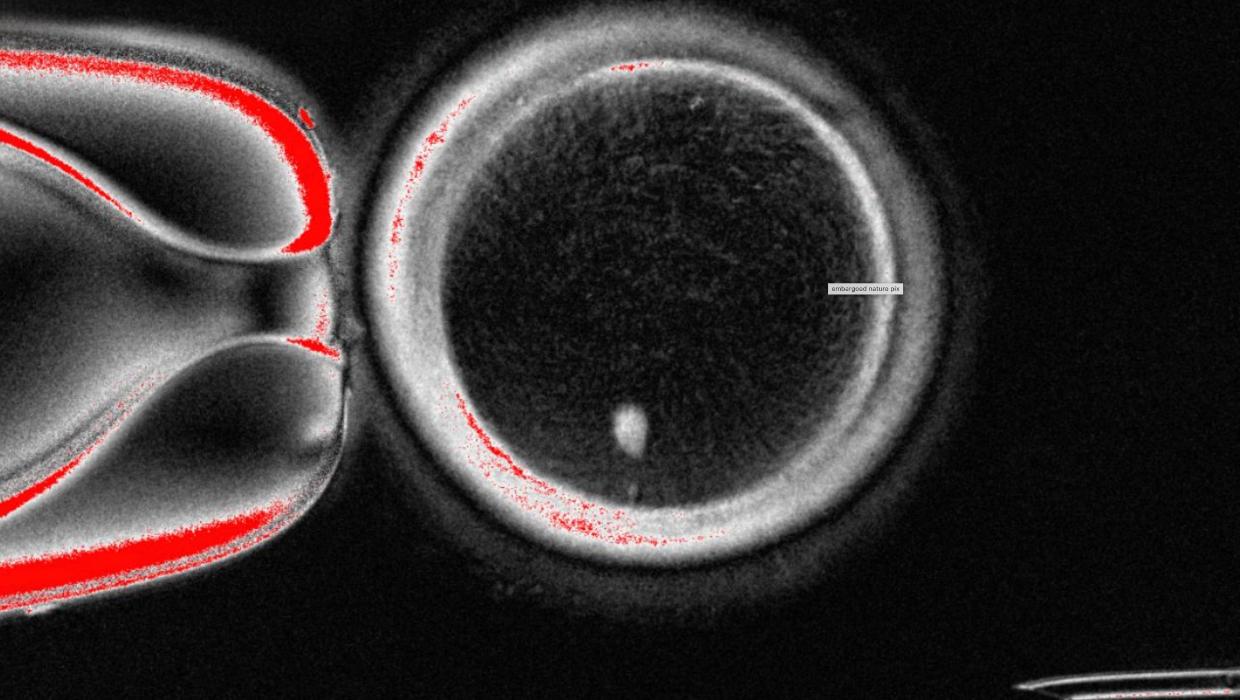Science
US Researchers Transform Skin Cells into Fertilizable Human Eggs

US scientists at the California Institute of Technology have successfully transformed human skin cells into fertilizable eggs, marking a significant advancement in reproductive science. This breakthrough could pave the way for lab-grown eggs and sperm, potentially offering new options for individuals facing fertility challenges.
The research, published in January 2024, highlights the innovative use of skin cells, which were reprogrammed into induced pluripotent stem cells. These stem cells can develop into any cell type, including gametes, which are essential for reproduction. This process aims to provide alternative solutions for those who struggle to conceive naturally or through traditional assisted reproductive technologies.
Dr. Jennifer Lee, the lead researcher on the project, expressed optimism about the implications of this work. “By creating fertilizable human eggs from skin cells, we are taking a crucial step towards expanding reproductive possibilities,” she stated. The study not only opens new avenues for fertility treatments but also raises important ethical considerations about the future of reproductive technology.
As infertility rates increase globally, innovative approaches are being explored to assist those affected. The World Health Organization has reported that approximately 15% of couples experience difficulty conceiving, a statistic that underscores the urgency for advancements in this field. The ability to generate gametes from skin cells could provide a solution for many individuals who may not have viable eggs or sperm.
In the laboratory, the team successfully created eggs that were capable of undergoing fertilization. These findings are expected to be a foundation for further research into artificial gamete production. The implications of this technology extend beyond fertility treatments; it may also contribute to a better understanding of genetic diseases and reproductive health.
While the potential benefits are significant, the research also invites discussions surrounding the ethical landscape of reproductive technology. Questions arise regarding the implications of creating human gametes in a lab setting, as well as concerns about accessibility and the regulation of such technologies.
The study represents a crucial milestone in stem cell research and reproductive technology. Researchers are now focusing on refining the techniques to enhance the efficiency and safety of the gamete creation process. Future studies will also explore the long-term viability of these lab-grown eggs once fertilized.
As this groundbreaking research progresses, it is essential to engage with both the scientific community and the public to address ethical concerns and establish guidelines for the responsible use of such technologies. The journey from skin cells to fertilizable eggs is just the beginning of a potentially transformative era in reproductive health.
In conclusion, the successful creation of fertilizable eggs from skin cells by US researchers signifies a promising development in reproductive science. As the field moves forward, the focus will likely remain on balancing innovation with ethical considerations, ensuring that advancements serve the best interests of individuals and families seeking to grow.
-

 World3 months ago
World3 months agoTest Your Knowledge: Take the Herald’s Afternoon Quiz Today
-

 Sports3 months ago
Sports3 months agoPM Faces Backlash from Fans During Netball Trophy Ceremony
-

 Lifestyle3 months ago
Lifestyle3 months agoDunedin Designers Win Top Award at Hokonui Fashion Event
-

 Sports3 months ago
Sports3 months agoLiam Lawson Launches New Era for Racing Bulls with Strong Start
-

 Lifestyle3 months ago
Lifestyle3 months agoDisney Fan Reveals Dress Code Tips for Park Visitors
-

 World3 months ago
World3 months agoCoalition Forms to Preserve Māori Wards in Hawke’s Bay
-

 Health3 months ago
Health3 months agoWalking Faster Offers Major Health Benefits for Older Adults
-

 Politics3 months ago
Politics3 months agoScots Rally with Humor and Music to Protest Trump’s Visit
-

 Top Stories3 months ago
Top Stories3 months agoUK and India Finalize Trade Deal to Boost Economic Ties
-

 World3 months ago
World3 months agoHuntly Begins Water Pipe Flushing to Resolve Brown Water Issue
-

 Entertainment3 months ago
Entertainment3 months agoExperience the Excitement of ‘Chief of War’ in Oʻahu
-

 Science3 months ago
Science3 months agoNew Interactive Map Reveals Wairarapa Valley’s Geological Secrets









